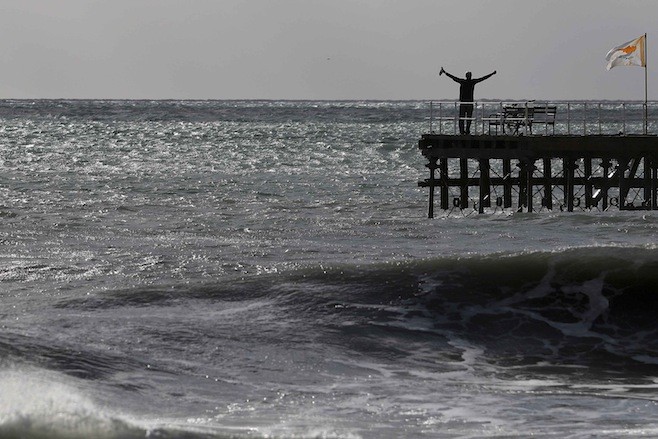Russian crisis could keep Cyprus in recession for longer
Post on: 20 Август, 2015 No Comment

By Michele Kambas
Economic woes in Russia are tempering prospects of bailed-out Cyprus returning to growth in 2015 and mean the island nation risks a fifth year of recession, analysts say.
As the rouble takes a tumble on the back of weak oil prices and Western-led sanctions, Moscows troubles are seeping into the Mediterranean island, where Russian-related business is thought to make up about 10 per cent of the Cypriot economy.
I am not forecasting growth this year, largely due to the Russian crisis and the decline in tourism arrivals, said Fiona Mullen, director at Sapienta Economics, a financial consultancy.
Cyprus has been in recession since mid-2011, and required a €10 billion financial lifeline from the European Union and the IMF in 2013 to stave off bankruptcy. Authorities and international lenders had expected tepid growth of 0.4 to 0.5 per cent this year after an estimated 2.8 per cent slump in 2014.
My forecast is for a contraction of 0.7 per cent this year, Mullen said.
The most obvious impact of the Russian crisis has been a sharp fall in Russian visitors, who made up roughly 25 per cent of all the islands tourists in 2013 the second largest national grouping after sun-starved Britons.
But with the rouble falling by more than 40 per cent against the dollar last year, and already down some 10 per cent this year, many Russians have had to drop plans to travel abroad.
Arrivals from Russia plunged 25 per cent year-on-year in November, according to the latest available data. Under the best case scenario, I would expect a 15 to 20 per cent drop in arrivals from Russia this year, said Victor Mantovani, former head of the islands travel agents association ACTA.
Tourism accounts for about 11 per cent of Cypruss €18 billion economy, and the Russians are vital to its well-being.
They represent 30 per cent of total revenue. They spend more, said Phidias Pilides, president of the Cyprus Chamber of Commerce and Industry. They are starting to spend less.
According to official data, a Russian visitor in October 2014 spent on average €95.2 a day, compared to €122 a year earlier. That is still more than the average Britons, who spent just €75.7 daily.
BRINGING ASSETS HOME
Cyprus and Russia have had close ties since before the collapse of communism. Low taxes, cultural ties through Orthodox Christianity and the weather proved highly attractive to newly rich oligarchs looking to park cash and businesses.
When Cyprus faced its own financial woes in 2013, analysts estimated that more than a third of all Cyprus bank deposits might have had Russian origin and numerous Russian companies are registered on the island.
Looking to tame the economic turmoil at home, President Vladimir Putin has told Russian businessmen to de-offshore their assets and authorities have introduced amendments which subjects offshore income to taxation.
Russias richest man Alisher Usmanov swiftly complied, announcing last month that he had transferred his holdings in mobile operator Megafon and iron ore producer Metalloinvest to Russian entities from Cyprus.
Russias presence in the economy has been a huge supporting factor. Its footprint is everywhere from tourism to real estate, so it is worth monitoring the impact, said Michael Florentiades, chief economist and head of investment research at XM.com, an online financial services company in Limassol.
He predicted the local economy would contract one per cent this year. The impact on the international business services sector because of the deteriorating situation in Russia is also important to watch, he said.














